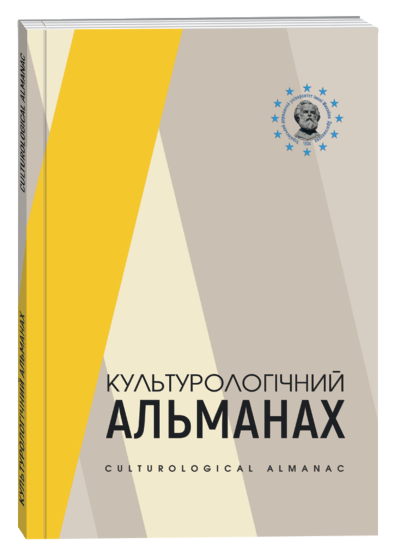HEIDEGGER AND SKOVORODA: ATTEMPT OF COMPARATIVE ANALYSIS OF METAPHYSICAL DIMENSIONS OF FREEDOM
DOI:
https://doi.org/10.31392/cult.alm.2022.4.11Keywords:
Heidegger, Skovoroda, metaphysic, freedom, national philosophyAbstract
The purpose of the article is an attempt to build a dialogue between two outstanding world thinkers – Heidegger and Skovoroda regarding the essence and peculiarities of the understanding of the metaphysics of freedom by each of the thinkers. If Heidegger offers an almost complete system of views on basic philosophical questions, we will not find anything similar in Skovoroda. Heidegger develops a complex linguistic chain of formation of metaphysical categories, Skovoroda’s philosophical language is saturated with images and symbols that are actualized in the context of the Slavic language. Considering the connection of the problem of freedom with the existential, social, ethical dimensions of human existence, the context of Heidegger’s and Skovoroda’s problems is articulated by the cognitive and axiological aspects of freedom. Any metaphysical way of justifying freedom argues for the subject’s attitude to the world. The categories of freedom determine the reality that a person experiences and exists. The question of the essence of man, discussed by both Heidegger and Skovoroda, leads to the postulation of a knowing substance. In his time, Descartes called to get rid of errors that harm the natural light of the mind, similarly, Heidegger, Skovoroda (of course, each in their own way) bring the discourse on freedom to the level of defining the essence of a person. A person himself seeks the completion of his essence through his own choice, thereby ascertaining the universal and free human self. Presumably, both eminent philosophers, imaginatively discussing freedom, would define it as openness, because it is what allows the present to be what it is. Freedom reveals itself through the permission to be, ensuring responsibility for oneself, for the world, for existence.
References
Белодед В. Метафизика творения Г. Сковороды и ее патристический контекст. URL: file:///C:/Users/Zver/Downloads/Pf_2015_3_11.pdf
Dierksmeier С. (2016). Qualitative Freedom – Autonomy in Cosmopolitan Responsibility Published in German by Published by Transcript Qualitative Freiheit – Selbstbestimmung in weltbürgerlicher Verantwortung. 371 р.
Jaran F. (2015). Toward a Metaphysical Freedom: Heidegger’s Project of a Metaphysics of Dasein. International Journal of Philosophical Studies. Vol. 18(2). P. 205–227. URL: file:///C:/Users/Zver/Downloads/Jaran-TowardPre-print.pdf (дата звернення: 27.11.2022).
Ruin Р. (2008). The destiny of freedom: In Heidegger. Continental philosophy review. Vol. 41. № 3. P. 277–299. URL: https://www.academia.edu/36952393/The_destiny_of_freedom_in_Heidegger (дата звернення: 25.11.2022).
Сартр Ж.-П. (2008). Проблемы метода. Статьи. Москва : Академический проект. 222 с.
Сковорода Григорій (2011). Повна академічна збірка творів / за ред. Леоніда Ушкалова. Харків ; Едмонтон ; Торонто : Майдан ; Видавництво Канадського Інституту українських студій. 1400 с.
Ушкалов Л. (2004). Григорій Сковорода: семінарій. Харків : Майдан. 776 с.
Хайдеггер М. (2013). Что такое метафизика? / пер. с нем. В. Бибихина. 2-е изд. Москва : Академический проект. 288 с. URL: http://www.naturalthinker.net/trl/texts/Heidegger,Martin/texts%20on%20Heidegger/Alweiss,%20Lilian%20-%20Heidegger%20On%20Time.pdf
Чижевський Д. (1992). Нариси з історії філософії на Україні. Київ. 230 c.








